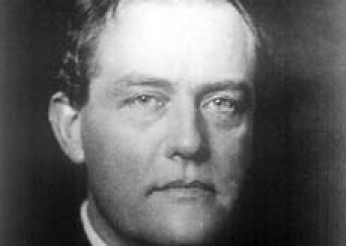Victor Sjőstrőm was undoubtedly the most important personality of Swedish cinema
before the appearance of Ingmar Bergman. Today, however, he is a figure from the
past and most younger viewers have heard of him only thanks to the above
mentioned master of Swedish and international cinema. Sjőstrőm directed from
1911 till 1937. Nowadays he is mostly rememberedfor the role of father in
Bergman's film Wild Strawberries (1957). It is hard to imagine that the
facade of a peaceful nobleman receiving final credits for his contribution to
science hides a turbulent life and a rich acting and directing career. As a
child, traveling with his father, a more or less successful businessman, he
spent some time in the USA. That was before the rise of Hollywood. He began his
acting and directing career on stage, before World War I, in Finland. On his
return to Sweden he met the second great master of Swedish film – Mauritz
Stiller. In 1912 he started acting in his films, but he also directed and often
starred in his own films. In less than a year his fame went beyond the borders
of Sweden. Some critics consider his social psychological drama Ingeborg Holm
to be one of the greatest achievements in film before Griffit's outstanding
films of the World War I period. Terje Vigen (1917), The Outlaw and
his Wife (1918), Ingmar's Sons (1921) and The Phantom Chariot
(1921) won him further international acclaim. Sjőstrőm was the first to use
scenery not only as a setting for actors and action, but also as a rhetorical
superstructure of film's dramatic elements and an addition to the psychological
characterization of his deeply passionate characters. At the beginning of 1920s,
as Swedish film industry found itself in crisis, Sjőstrőm got a call from
Hollywood. He was successful there too, mostly due to the a fore mentioned
qualities that he masterfully implemented in his Hollywood melodramas. In
Hollywood he shot his masterpiece, The Wind (1928) starring Lilian Gish.
After this success, he slowly started to withdraw from film. He returned to
Sweden where he assisted in the first takes of the sound film. In 1937 he made
his last appearance as film director. Appearing in Bergman's movie Wild
Strawberries (Bergman was in his younger years undoubtedly influenced by
Sjőstrőm), Sjőstrőm bade a dignified farewell to film.
